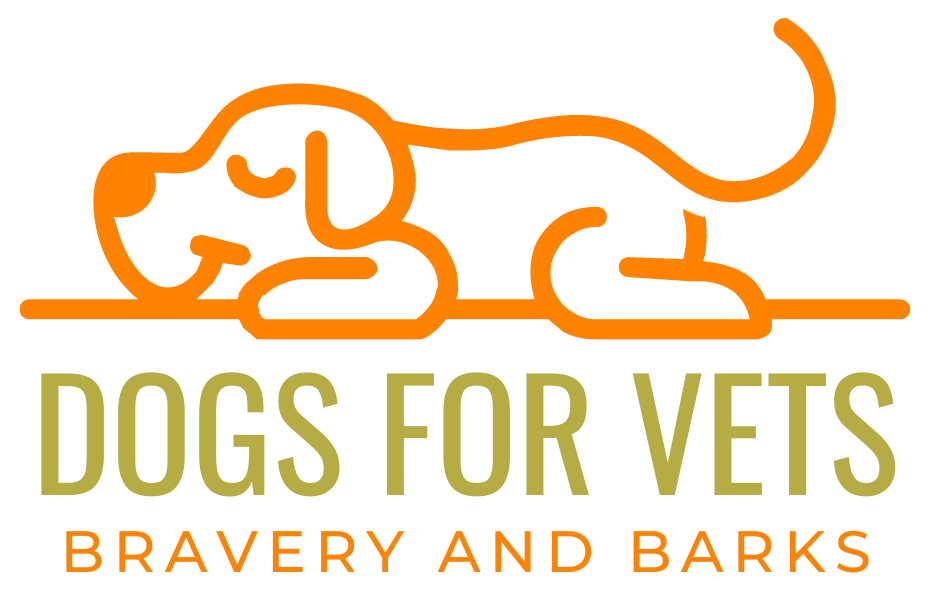This post may contain ads and affiliate links and we may earn a small commission when you click on the links at no additional cost to you. As an Amazon Affiliate, we earn from qualifying purchases. You can read our full disclaimer here.
Signs Your Senior Dog is Healthy: Key Indicators to Watch For
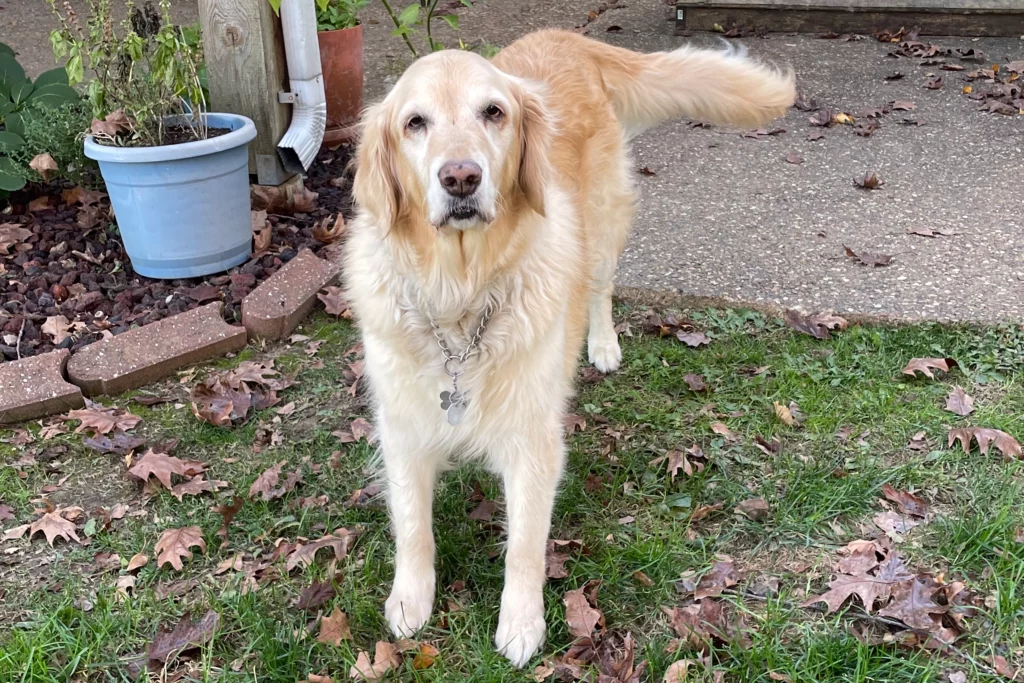
Understanding the signs your senior dog is healthy is crucial as they age.
As they age, it’s essential to keep an eye on their well-being and overall health. Senior dogs may not possess the same energy levels as their younger selves, but they can still maintain a good quality of life with proper care and attention.
Recognizing the signs of a healthy senior dog can provide peace of mind and help ensure that your pet stays happy and comfortable throughout their golden years.
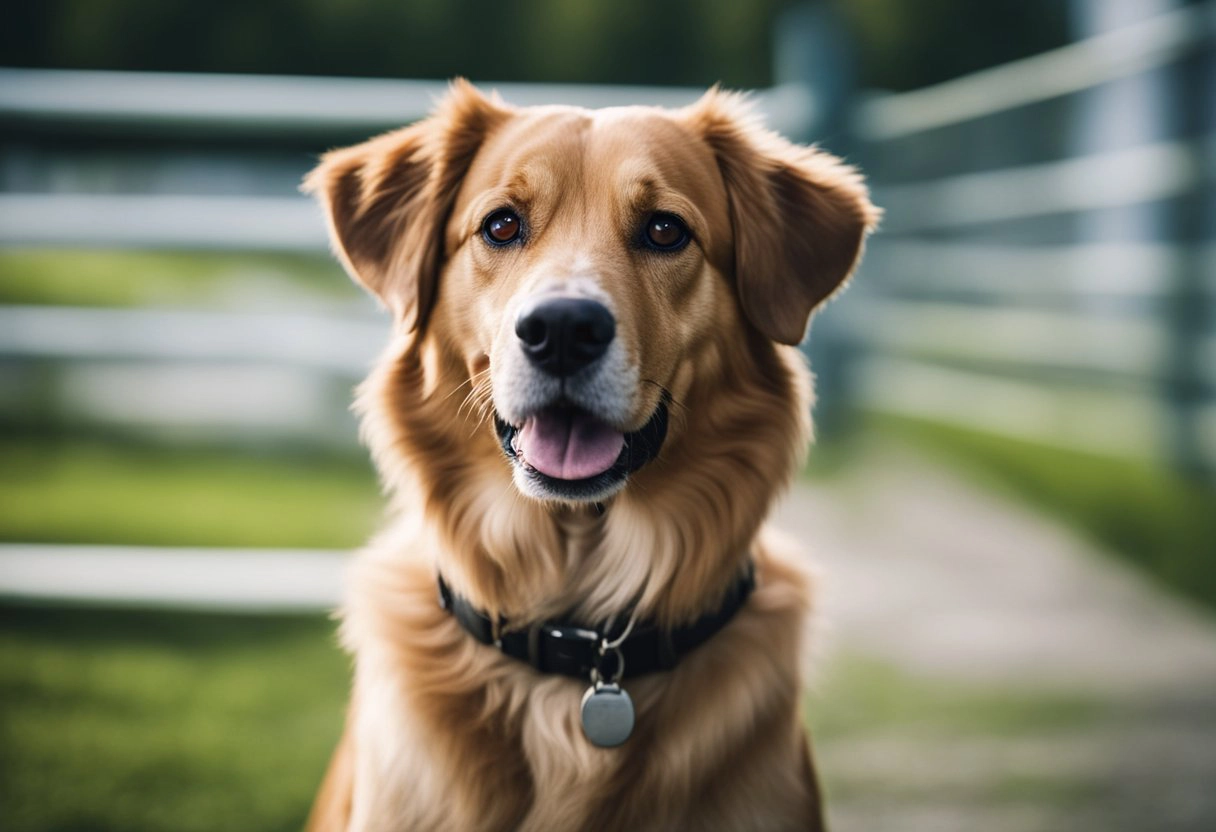
Physical, mental, and emotional wellness contribute to the overall health of an aging dog. Monitoring their appetite, weight, and mobility, while also paying attention to their mental sharpness and emotional stability, is key in identifying potential health issues and addressing them promptly.
Furthermore, understanding the nutritional needs of senior dogs and providing a well-balanced diet tailored to their requirements can greatly impact their overall well-being.
Key Takeaways
- Monitoring physical, mental, and emotional wellness is crucial for a healthy senior dog
- A well-balanced diet tailored for senior dogs contributes to their overall well-being
- Early identification of potential health issues can enhance your senior dog’s quality of life
Recognizing an Older Dog and Signs Your Senior Dog is Healthy

As your dog ages, it is essential to recognize the signs of a senior dog to maintain their health and well-being. Generally, smaller breeds like the Chihuahua tend to have a longer lifespan in comparison to larger breeds like the Great Dane.
The aging process for dogs varies, depending on their size and breed.
- Here is a rough guideline for determining if your dog is a senior:
- Small breeds (<20 lbs): 10-12 years
- Medium breeds (20-60 lbs): 8-10 years
- Large breeds (60-100 lbs): 6-8 years
- Giant breeds (>100 lbs): 5-7 years
Keep an eye on your dog’s physical and behavioral changes to better understand their overall health. Some common signs that indicate your dog is aging are:
- Slower pace and increased napping
- Changes in sleep patterns
- Graying of their coat, especially around the muzzle
- Cloudy eyes or decreased vision
- Changes in weight or appetite
If your senior dog exhibits these signs, it is vital to schedule regular veterinary checkups. Your vet may recommend some basic laboratory tests, including blood work and blood pressure assessment, to monitor your senior dog’s health.
Maintaining your senior dog’s health through proper nutrition, regular exercise, and mental stimulation can result in a comfortable and happy life for your furry friend.
Remember, each dog is unique, and the aging process may manifest differently, so monitor your dog diligently and consult with your veterinarian for personalized care.
Physical Signs Your Senior Dog is Healthy
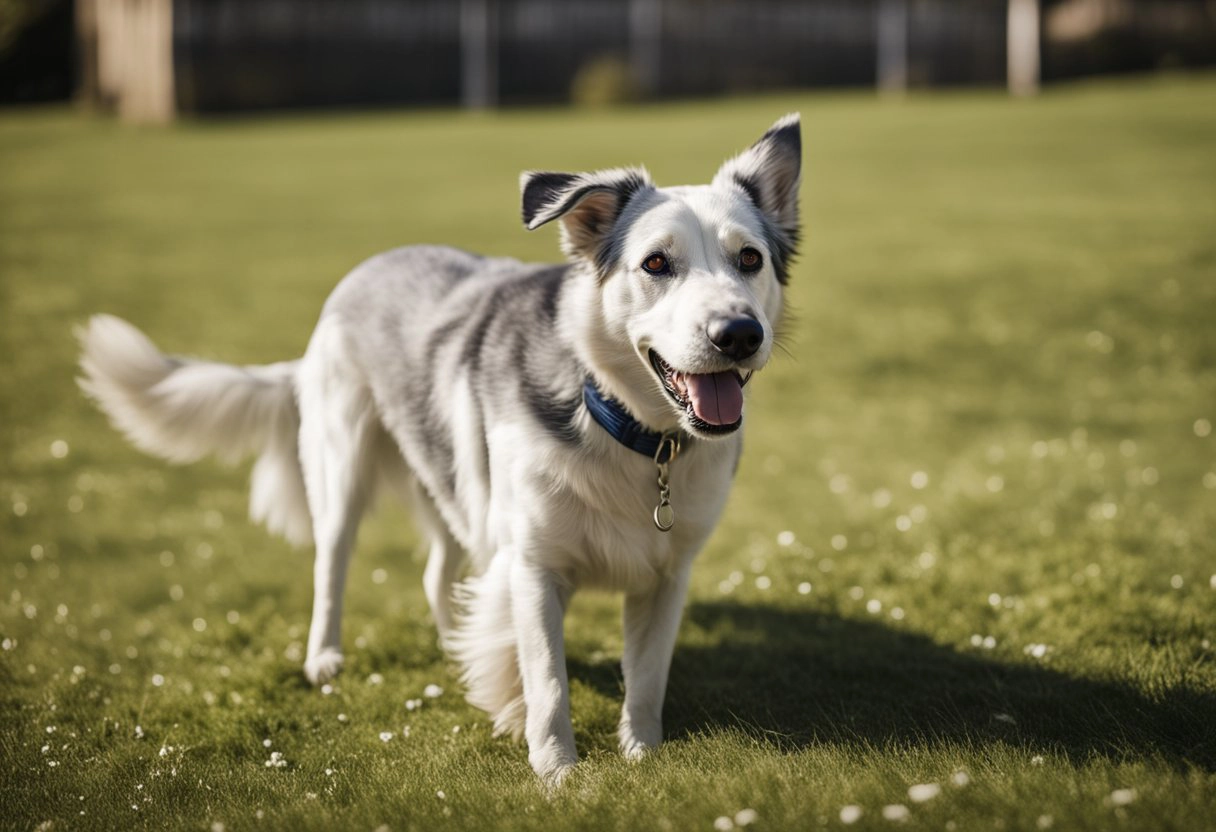
Mobility and Movement
As your dog enters its senior years, it’s essential to pay attention to its mobility and movement. A healthy senior dog should maintain a level of activity appropriate for their age and breed.
Although they may move slower than when they were younger, there should be no reluctance or difficulty in getting up or lying down. Watch for any signs of stiffness or limping, as these can indicate potential joint issues or pain.
Weight Monitoring
Regularly monitoring your dog’s weight is crucial in ensuring its health. Sudden weight gain or weight loss may indicate underlying health issues. A healthy senior dog should maintain a stable weight within the recommended range for their breed and size.
Make sure to provide a balanced diet and adjust your dog’s food intake according to their activity level and medical needs.
- Weight gain can suggest overfeeding or decreased activity levels.
- Weight loss might be due to appetite changes or other health problems.
It is best to consult your veterinarian if you notice significant changes in your dog’s weight.
Dental Health
Good dental health plays a significant role in your senior dog’s overall well-being. Regularly examine your dog’s teeth and gums for any signs of dental issues, such as:
- Plaque buildup
- Swollen or bleeding gums
- Bad breath
- Loose or missing teeth
A healthy senior dog should have clean teeth with minimum plaque and no signs of infection or inflammation. Make sure to provide dental chews, toys, or brushing to promote your senior dog’s oral health.
Skin and Coat Quality
Another important aspect in assessing your senior dog’s health is by examining its skin and coat. A healthy senior dog should have:
- Smooth, clean skin, free from any irritation or redness
- Shiny, well-groomed coat, without excessive shedding or odor
Gently massage your dog’s body while grooming to check for any lumps, bumps, or skin changes. If you notice any abnormalities or changes in their coat quality, consult your veterinarian for proper assessment and treatment.
Remember, a well-cared-for and healthy senior dog will show signs of aging, but maintaining proper weight, mobility, dental health, and skin and coat quality will help ensure your dog remains comfortable and happy throughout its golden years.
Want to help an aging senior dog? Read our post about fostering senior dogs.
Mental and Emotional Wellness in Aging Dogs
Happiness and Comfort
A sign of a healthy senior dog is their ability to maintain happiness and comfort. Happy dogs will still wag their tails, play with their toys, and engage in daily activities, despite their age.
It’s important to closely monitor your dog’s behavior for any changes that may indicate discomfort. Some signs of discomfort in aging dogs can include pacing, panting, or hesitating to lie down.
By ensuring a comfortable environment and addressing any health issues, you can contribute to the mental and emotional well-being of your senior dog.
Anxiety and Irritability
As dogs age, they may experience increased anxiety or irritability. This could be due to a decline in cognitive function, disorientation or physical discomfort, such as arthritis.
Keep an eye on behavioral changes that may indicate anxiety or irritability, including:
- Excessive barking or whining
- Inconsistent sleep patterns
- Snapping or acting aggressively toward people or other animals
Be patient and understanding with your senior dog, providing a stable routine and a comforting environment to alleviate these issues.
Interaction Levels
A healthy senior dog should still be interested in interacting with you and other animals. While older dogs may be less energetic than before, decreased interaction levels could be a sign of a mental or physical issue.
Monitor your dog’s willingness to engage in play, cuddling, or walks. Some potential reasons for decreased interaction may include:
- Loss of eyesight or hearing
- Pain from arthritis or other conditions
- Cognitive decline
Contact your veterinarian if you notice sudden or significant changes in your dog’s interaction levels. Regular check-ups can help detect and address any underlying issues early on, ensuring a happier and healthier life for your senior dog.
Nutritional Needs and Diet
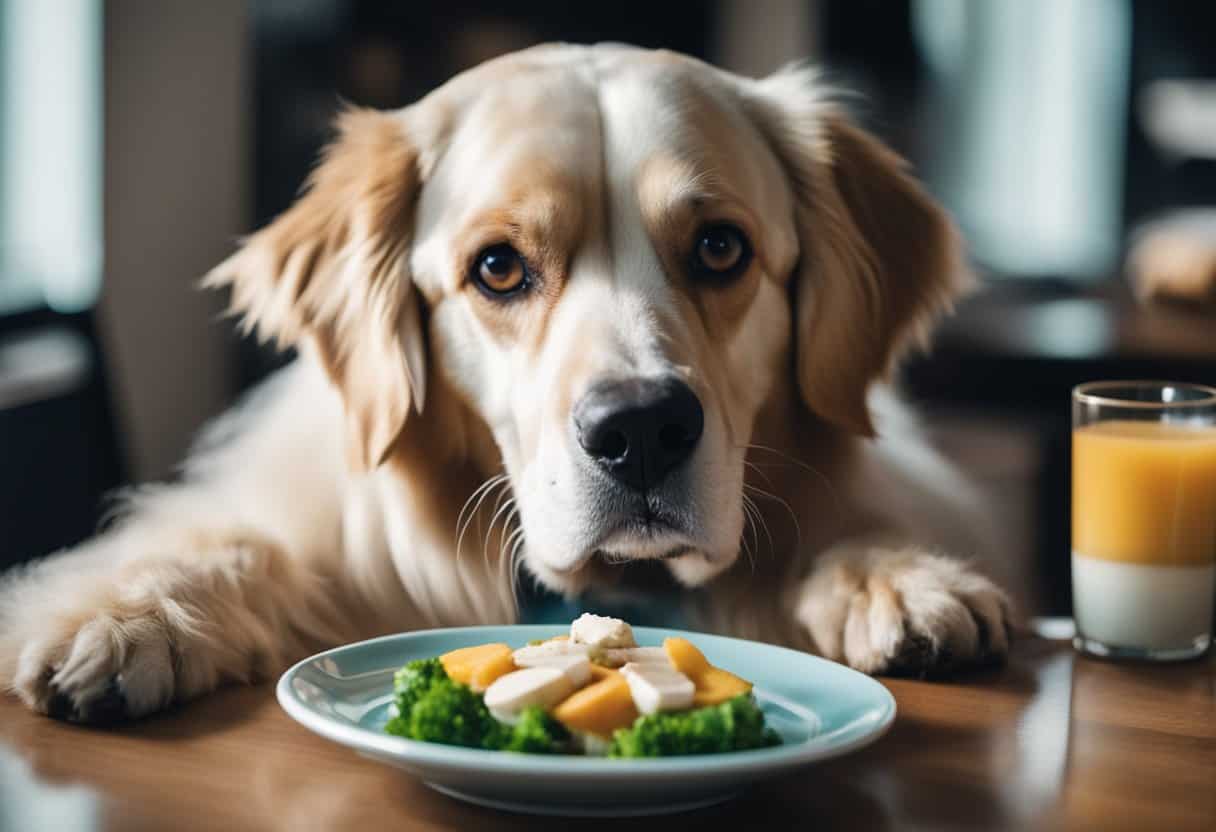
Senior Dog Food
As your dog ages, their nutritional needs change. It is essential to provide a diet that caters to their specific requirements, known health conditions, and lifestyle. You should consult your veterinarian when considering a dietary change for your senior dog.
While there is no universal rule for switching to senior dog food, paying attention to changes in your dog’s lean body mass, activity level, and the presence of health conditions like arthritis or obesity can help you determine when and if a change is necessary.
It’s also important to understand that a senior dog’s maintenance energy requirements (MER) decrease with age due to decreases in lean body mass and activity level.
Opt for low-fat, low-sodium food options in order to maintain a healthy weight and avoid putting unnecessary strain on their organs.
Supplements and Nutrients
In addition to providing the appropriate senior dog food, it may be beneficial to incorporate some essential supplements and nutrients into their diet for healthy aging.
For example, long-chain omega-3 polyunsaturated fatty acids, specifically EPA (eicosapentaenoic acid) and DHA (docosahexaenoic acid), can help reduce inflammation in conditions caused by obesity or arthritis.
These can often be found in fish oil supplements.
Here’s a list of nutrients that can be beneficial for your senior dog:
- Omega-3 fatty acids: Reduce inflammation and support brain health.
- Glucosamine and chondroitin: Promote joint health and reduce arthritis symptoms.
- Antioxidants: Neutralize free radicals and support the immune system.
In conclusion, regularly assessing your dog’s health and consulting your veterinarian will help you make the best decisions regarding their diet and the use of supplements.
Maintaining an appropriate diet and nutrient intake will help your senior dog live a healthier and more comfortable life.
Signs Your Senior Dog is Healthy and Effects of Aging on Senses
As your dog ages, their senses may be affected. This section will discuss some of the potential changes in their vision and hearing health.
Vision and Eye Health
One possible sign of aging in dogs is a decline in their vision. Their eyes might become cloudy, which can be indicative of a condition called nuclear sclerosis. This is a normal change in the lens of the eye due to aging and may not significantly affect their vision.
However, a more severe eye disorder, such as cataracts, can lead to blindness if left untreated. Some common symptoms of cataracts are a whitish-blue opacity in the eye, frequent bumping into objects, and hesitance to climb stairs or jump.
To maintain good eye health, pay attention to the following:
- Regular check-ups with a veterinarian – They can examine your dog’s eyes for early signs of problems and provide appropriate treatment.
- Keeping eyes clean – Wiping away any discharge with a damp cloth can prevent eye infections.
- Proper diet and nutrition – Foods rich in antioxidants and omega-3 fatty acids can help maintain your dog’s eye health.
Hearing Health
Another sense that might be affected by aging is your dog’s hearing. Some senior dogs may experience partial or complete deafness due to age-related hearing loss.
Early signs of hearing loss include not responding to their name, no reaction to loud noises, and increased barking or whining.
Here are some ways to support your dog’s hearing health:
- Regular vet visits – A veterinarian can check for any signs of hearing problems, such as ear infections or wax buildup, and recommend appropriate treatment.
- Monitor changes in their behavior – If you notice your dog experiencing difficulty hearing, consider using hand signals or vibrating collars to help them communicate effectively.
- Maintain a safe environment – Ensure that potentially dangerous areas, like stairs or pools, are secured to protect your dog from accidents due to hearing loss.
In summary, be attentive to your senior dog’s vision and hearing health. By closely monitoring any changes, scheduling regular vet visits, and making adjustments to their environment as needed, you can help ensure that their senses are supported as they age.
Preventive and Routine Care for Senior Dogs
Wellness Exams
Regular wellness exams are essential for maintaining your senior dog’s health. It’s recommended to schedule check-ups with your vet at least every six months. These exams typically involve a thorough physical, blood work, and screenings for common age-related issues like arthritis and organ failure.
Make sure to discuss your dog’s diet and additional healthcare measures with your vet to ensure your pet is receiving optimal care.
Exercise and Physical Activities
Even though your senior dog may not have the same energy as they used to, exercise is still crucial for their overall well-being. Regular physical activities help maintain muscle mass, prevent weight gain, and can slow down cognitive decline.
Make sure to adjust your dog’s routine to include gentler exercises like leash walks and low-impact games. Consider using ramps or steps to help them with mobility and ease the strain on their joints during playtime or adventures.
| Activity | Age-appropriate modification |
|---|---|
| Walks | Shorter, slower-paced walks |
| Fetch | Roll the ball instead of throwing it |
| Stair climbing | Use ramps or steps to assist |
Creating a Comfortable Environment
Providing a comfortable and pain-free environment for your senior dog is essential for their overall quality of life. Investing in an orthopedic dog bed can help alleviate the pressure on your dog’s joints and provide a comfortable resting place.
Place multiple orthopedic dog beds throughout your home, allowing your dog to rest comfortably wherever they prefer.
Incorporate non-slip mats or rugs in areas where your dog frequently walks to help them maintain better footing and prevent slips or falls.
Be attentive to your dog’s body language and make necessary adjustments to their living space based on their needs, ensuring their golden years are comfortable and enjoyable.
When to Seek Veterinary Care
As a responsible pet owner, it’s essential to monitor your senior dog’s health and know when to seek veterinary care. While aging is a natural process, senior dogs may experience more frequent health issues. Here are some key signs to watch for and when to consult with your veterinarian.
Pain and Chronic Pain: Look for changes in your dog’s posture, such as hunching over, stiffness, or difficulty getting up.
If your dog seems to be in pain, especially if it’s recurring or persistent, it’s time to visit the vet. They can help identify the cause and recommend appropriate treatment to improve your dog’s quality of life.
Accidents: As your dog ages, their bladder control might decrease, leading to accidents in the house. This could indicate a urinary infection or other underlying health problems.
If your senior dog starts having accidents regularly, consult with your veterinarian for proper diagnosis and treatment options.
Behavior Changes: Keep an eye out for sudden changes in your dog’s behavior, such as aggression, anxiety, or confusion. These could be signs of neurological issues or other age-related disorders.
Don’t hesitate to bring your dog to the vet if you notice any alarming behavior changes.
Dental Health: Maintaining oral hygiene is crucial for senior dogs, as plaque buildup can lead to dental problems and gum disease.
Regularly brush your dog’s teeth and schedule annual dental cleanings at your veterinarian’s office. If your dog shows signs of oral discomfort or difficulty eating, contact your vet for further evaluation.
To help your senior dog maintain optimal health, increase veterinary visits to once every six months. This allows your vet to detect early warning signs of illness and address them promptly.
Remember, a healthy and happy senior dog relies on your attentive care and timely veterinary consultations.
Wrapping Up Signs Your Senior Dog is Healthy
As pet parents, ensuring the health and quality of life for your senior dog is essential. By being observant and proactive, you can provide your aging dog with the care they deserve.
Geriatric dogs may experience various changes in their behavior and physical abilities, but recognizing the signs of good health is just as important.
Regular check-ups with your veterinarian are crucial to catch and manage any health issues that may arise. In between visits, pay attention to your dog’s energy levels and appetite, as these can be indicators of their overall health.
Maintaining a healthy weight and an appropriate exercise routine can also help keep your senior dog in good shape.
As your dog ages, you might notice a gradual graying of their fur, particularly around the face. This is a natural part of the aging process, and it doesn’t necessarily indicate any health problems.
However, changes in your dog’s mobility, like difficulty climbing stairs or jumping, could signal underlying issues that warrant further attention.
Finally, providing a comfortable environment with a high quality of life is essential for the well-being of your aging dog. Consider investing in orthopedic beds, raised feeding stations, and aids for mobility, such as ramps.
Additionally, ensure that your home is free from hazards that could cause your senior dog to slip or fall.
Caring for a senior dog can be a rewarding experience, as you help them navigate their golden years with dignity and comfort. Remain attentive and dedicated to meeting their changing needs, and rejoice in the strong bond you have established with your beloved companion.
Frequently Asked Questions about Signs Your Senior Dog is Healthy
What are common signs of a healthy senior dog?
A healthy senior dog will have a good appetite, maintain a relatively stable weight, and display a steady energy level. Their coat should remain shiny and smooth, while their eyes should be clear without discharge or redness.
Regular and consistent elimination habits, along with good dental health, are additional indicators of a senior dog in good health.
How can I ensure my senior dog’s well-being?
To promote your senior dog’s well-being, schedule regular veterinary checkups, provide a balanced and age-appropriate diet, and engage in mental and physical stimulation. Regular, moderate exercise helps maintain muscle tone and joint mobility.
Keep an eye out for any health problems and consult your veterinarian for any concerns.
What factors contribute to a senior dog’s quality of life?
Quality of life factors for senior dogs include a healthy diet, proper exercise, mental stimulation, comfortable living conditions, regular veterinary care, and a strong bond with their owner.
Address any age-related health issues promptly to ensure your dog’s well-being.
How can I assess my old dog’s overall health?
Regular veterinary checkups are essential for assessing your senior dog’s health. Your veterinarian will perform physical examinations, blood tests, and other diagnostic tests to evaluate your dog’s organ function, dental health, joint health, and overall well-being.
Keep track of any changes in behavior, appetite, or energy levels to discuss during these visits.
Are there specific behaviors indicating my senior dog is in good shape?
A senior dog in good shape will remain engaged with their environment, maintain a steady level of energy, and show interest in playing or going for walks. They may prefer more frequent, shorter activities instead of long, strenuous ones.
Any changes in behavior, such as increased sleepiness or disinterest in usual activities, should be discussed with your veterinarian.
What preventative measures can maintain my senior dog’s health?
Preventative measures for your senior dog’s health include regular veterinary visits, a balanced diet specifically designed for their age and health requirements, dental cleanings, moderate exercise, maintaining a comfortable living environment, and addressing health issues promptly.
Providing mental stimulation and consistently nurturing a strong bond with your dog is also important for their overall well-being.
-
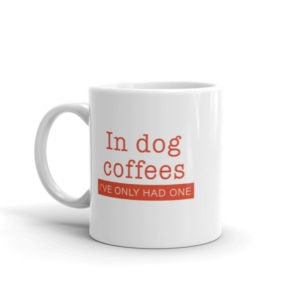
Coffee Mug – In Dog Coffees I’ve Only Had One
Price range: $11.95 through $14.95 Select options This product has multiple variants. The options may be chosen on the product page
